-
Thursday, 4 October, 7pm
Wang Bing. Masterclass
Museo Reina Sofía. Nouvel Building, Auditorium 400
The film-maker will give a masterclass to set in motion this series, putting forward the idea of film as a mediator between extreme living conditions and the viewer. Wang Bing’s approach to film-making is grounded in living with subjects portrayed over long periods of time, to the point where the director is no longer directing or arranging shots, or any other aspect of sound and image, with the camera subordinate to the lives being filmed and their daily affirmation of clinging to existence.

-
Friday, 5 October, 5:30pm
Session 1. Beauty Lives in Freedom, Gao Ertai
International premiere
China, France, 2018, DCP, colour, original version with Spanish subtitles, 300’
Filmoteca Española, Cine Doré. Sala 1
Presented by Wang BingSecond session: Sunday, 7 October, 5pm. Museo Reina Sofía, Sabatini Building, Auditorium
With a presentation by Lihong Kong, the producer of many of Wang Bing’s films.Wang Bing’s corpus of film work can be pared down to two major themes. The first, people discarded by globalisation and their living conditions in contemporary China. The second, the memory of Chinese political dissidents’ repression during Maoism; namely, the conscience of a country subjected to the double amnesia of censorship and hyper-capitalism. This film, an international premiere, falls under this second theme. Gao Ertai (1931) is an artist, teacher, philosopher who, in the 1950s, was imprisoned in the Jianbiangou Labour Camp. The film works as a diptych with Fengming, the confessional story of another victim of reprisals, and closes a vast film series on those who disappeared.

-
Saturday, 6 October, 7:30pm
Session 2. Mrs Fang
First version. Cinema edit
China, France and Germany 2017, DCP, colour, original version with Spanish subtitles, 86’
Filmoteca Española, Cine Doré. Sala 1
With a presentation by Wang Bing.Wednesday, 17 October, 7pm
Session 2. Mrs Fang. Second version. Museum edit
China, France and Germany 2016-2018, digital archive, colour, original version with Spanish subtitles, 102’
Museo Reina Sofía, Sabatini Building, AuditoriumMrs Fang chronicles the transition to death of Fang Xiu Ying, a sixty-year-old woman with Alzheimer’s who spends her agonising final days surrounded by her family in the bucolic landscape of southern China. The long public and collective grieving evokes archaic forms of contemplating loss and, as in the entirety of Wang Bing’s filmography, pivots around the length of the final breath, the resistance to accepting defeat. As with Fengming, this film is screened for the first time in two versions, two edits of different lengths made by the film-maker, one for cinema and the other for museum screenings.
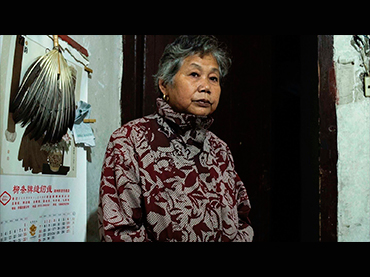
-
Tuesday, 9 October, 10pm
Session 3. The Ditch
China, France, 2010, DCP, colour, original version with Spanish subtitles, 113’
Filmoteca Española, Cine Doré. Sala 1The only fictional feature in Wang Bing’s filmography. Still banned in China, the film is a brutal endeavour to consider history against the grain. The Ditch is part of a broad film series on the history of repression meted out in the early years of Maoist China. Jiabangou is a labour camp to which a large number of dissidents were sent in the 1950s, including intellectuals and artists who, paradoxically, bought into the promises of Maoism. Most died of cold and starvation. Based on rigorous interviews with survivors, like Fengming, this film is one of the most extreme depictions of the crimes of totalitarianism.
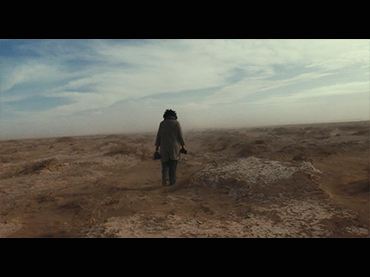
-
Thursday, 11 October, 6pm
Session 4. Ta´ang
China, France, 2016, DCP, colour, original version with Spanish subtitles, 148’
Filmoteca Española, Cine Doré. Sala 1The Ta’ang are an ethnic minority from Burma, forced into exile to China after a decades-long civil war. “My aim”, writes the film-maker, “was not to make a film about a grand narrative, armed conflict and its political causes, but to tell stories of displaced mothers and children wandering aimlessly, lost”. Ta’ang, a film among mass displacement and transient architecture, alludes to the efforts to maintain unity and the links to absolute dispossession.
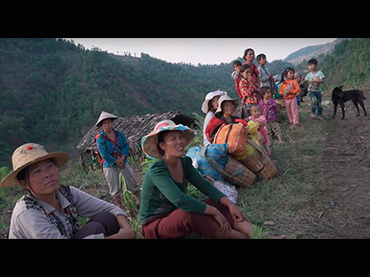
-
Saturday, 13 October, 12 noon
Session 5. Dead Souls
National premiere
China, France, 2018, digital archive, colour, original version with Spanish subtitles, 480’
Museo Reina Sofía, Sabatini Building, Auditorium
12 noon to 2:30pm (30’ intermission), 3pm to 6pm (15’ intermission), 6:15pm to 8:45pmSecond session: Sunday, 14 October, 12 noon. Museo Reina Sofía, Sabatini Building, Auditorium
The third film, after Fengming and The Ditch, on the mass killing of citizens who criticised Maoism in its first decade. In the province of Gansu, north-east China, lie the remains of thousands of prisoners left to rot in the Gobi desert sixty years previously. Dubbed ‘rightists’ in the Communist Party campaign of 1957, these people died of starvation in the Jiabiangou and Mingshui ‘re-education’ camps. The film looks to reconstruct the oral memory of trauma from survivors and the place’s landscape of tragedy. Often compared with Claude Lanzmann’s Shoa and Aleksandr Solzhenitsyn’s Gulag Archipelago, the film shows evil not as the exception but the norm.
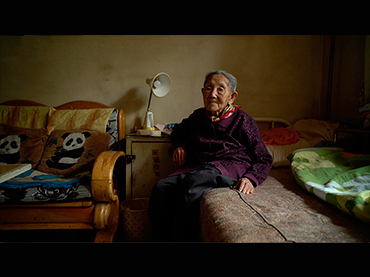
-
Monday, 15 October, 7pm
Session 6. Traces, Venice 70: Future Reloaded and Father & Sons
National premiere
Traces
China, France, 2014, digital archive, sound, b/w, 29’Venice 70: Future Reloaded
China, Italy, 2013, digital archive, original version with Spanish subtitles, 2'Father & Sons
China, France, 2014, digital archive, colour, original version with Spanish subtitles, 87’
Museo Reina Sofía, Sabatini Building, AuditoriumThis session features three works considered by Wang Bing to be video art, thus differing from the language of cinema. Venice 70 is a short film made for the 70th edition of the Venice International Film Festival and shows an anonymous, solitary man in his routine of survival. Traces, meanwhile, is a survey of mass graves in the Gobi Desert, but through a profoundly material and stark gaze. This is the only work by the director filmed for cinema and later digitalised, giving it the quality of poetry that is at once elegiac and stark. Finally, the film Father & Sons records the bare room that houses a worker and his two sons — engrossed in their mobile phones among extreme poverty — and has been interpreted as the expansion of consumerism among Chinese teenagers, regardless of their social background.
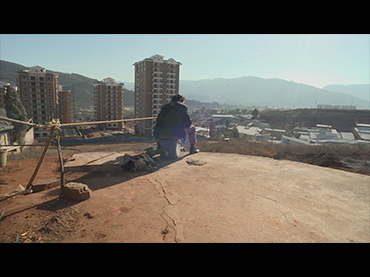
-
Thursday, 18 October, 7:30pm
Session 7. Alone (Gudu)
China, France, 2012, DCP, colour, original version with Spanish subtitles, 89’
Filmoteca Española, Cine Doré. Sala 1A shorter version of the film Three Sisters. Three sisters, Yinx (ten), Zhen (six) and Fen (four) live alone in the mountains, at an altitude of 3,200 metres, in a small family house in the Yunnan region. Their mother is absent and their father works in the local village. Bing returns to a familiar theme here: the strength of kinship in extreme isolation.
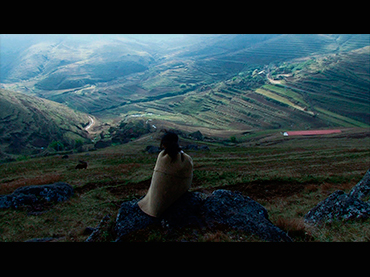
-
Saturday, 20 October, 9am
Session 8. 15 hours
National premiere
China, France, 2017, digital archive, colour, original version with Spanish subtitles, 900’
Screening without intermission
Museo Reina Sofía, Sabatini Building, AuditoriumSecond session: Sunday, 21 October, 9am. Museo Reina Sofía, Sabatini Building, Auditorium
One of the most defiant works in recent years, this single-shot film shows a day’s work in a clothing factory in the Zheijang province, challenging the limits of structure, conception and duration in the history of cinema as it seeks to reproduce the draining and monotonous passing of time in the slave-like garment factories in China. As with the origins of cinema, Wang Bing sees this medium as the direct consequence of the great industrial machine and the proletariat. In this screening, the cinema will be set up as an installation where the audience can move around freely.
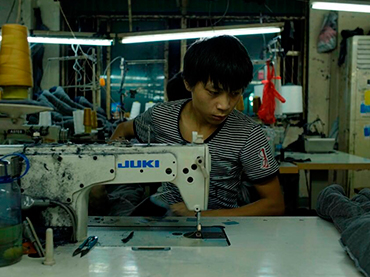
-
Monday, 22 October, 7pm
Session 9. Man with No Name
China, France, 2009, digital archive, sound, colour, no dialogue, 97’
Museo Reina Sofía, Sabatini Building, AuditoriumAn anonymous man leaves his cave among snow-covered ruins. Wang Bing focuses on the meticulous tasks of daily survival – the man collects firewood, cooks, eats, tidies, and transports his rags. A minute, silent life of someone without history, property or identity. Are we seeing a contemporary subject close to the absurd subject of Samuel Beckett? No. This is an obstinate and radical affirmation of the right to existence.
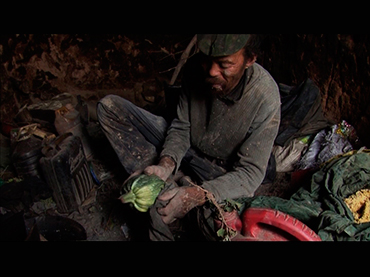
-
Thursday, 25 October, 7:30pm
Session 10. Happy Valley and Brutality Factory
Happy Valley
China, Spain, 2009-2011, DCP, colour, original version with Spanish subtitles, 49’Brutality Factory
China, Portugal, 2007, DCP, colour, original version with Spanish subtitles, 17’
Filmoteca Española, Cine Doré. Sala 1Two short films, each made for collective projects. In Happy Valley Wang Bing participates with Spaniard Jaime Rosales in Cinematic Correspondences from one director to another. The two directors, long-standing friends, renounce the format of an audiovisual letter to set forth a story of two geographically and culturally distant worlds. Brutality Factory, produced for the collective work The State of the World, with the participation of Pedro Costa, Chantal Akerman and Apichatpong Weerasethakul, is a fictional film of torture in Maoist China, drawn from the life of Fengming.
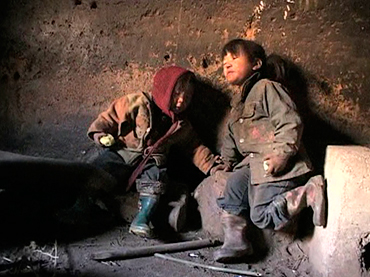
-
Friday, 26 October, 9:30pm
Session 11. Three sisters
China, France, 2012, DCP, colour, original version with Spanish subtitles, 153’
Filmoteca Española, Cine Doré. Sala 1Three sisters, Yinx (ten), Zhen (six) and Fen (four) live alone in the mountains, at an altitude of 3,200 metres, in a small family house in the Yunnan region. Their mother is absent and their father works in the local village. Bing returns to a familiar theme here: the strength of kinship in extreme isolation.
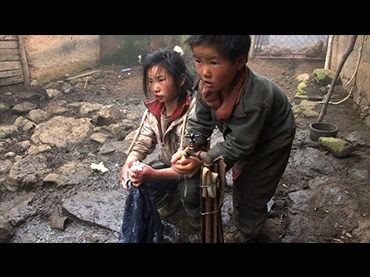
-
Saturday, 27 October, 5pm
Session 12. Til Madness Do Us Part
China, France, 2013, digital archive, colour, original version with Spanish subtitles, 228’
Museo Reina Sofía. Sabatini Building, AuditoriumSecond session: Sunday, 28 October, 5pm. Museo Reina Sofía, Sabatini Building, Auditorium
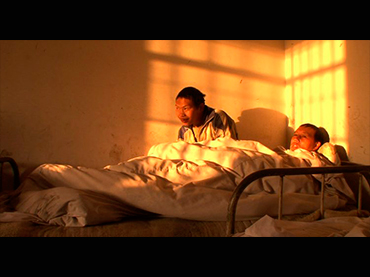
-
Tuesday, 30 October, 7:30pm
Session 13. Coal Money
China, France, 2009, DCP, colour, original version with Spanish subtitles, 53’
Filmoteca Española, Cine Doré. Sala 1This film explores the heavy exploitation of the landscape, according to the logic of an insatiable market in which coal is extracted and sold on to the highest bidder for electrical production. The cruel and beautiful drilled landscapes alternate with the fruitless journey in search of a buyer. Coal Money is a drama about rampant greed that transforms the face of the earth and the solidarity between workers, who trick and exploit each other. The film ends with a shot which, after a long journey, shows us the mine once again, describing a never-ending cycle.
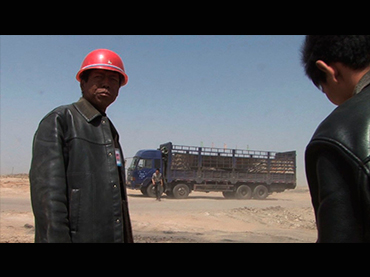
-
Tuesday, 30 October, 9pm
Session 14. Bitter Money
China, France, 2016, DCP, colour, original version with Spanish subtitles 145’
Filmoteca Española, Cine Doré. Sala 1The city of Huzhou is home to 18,000 clothing factories and more than 300,000 workers, mostly migrants from rural areas in the surrounding provinces. Wang Bing follows a group of these young workers in their 13-hour workdays and during their limited free-time, in which they wander around shabby rooms drinking, waste time with their mobile phones, or worry about not getting ripped off. The factory is not an assembly line; it is a place of condemnation that lacks ethics. A prize-winner of cinematography at the Venice Film Festival, the film’s camera is practically anonymous, creating through conversations and situations. Thus Wang Bing manages to render one of the most truthful and demoralising portrayals of an oppressive system.
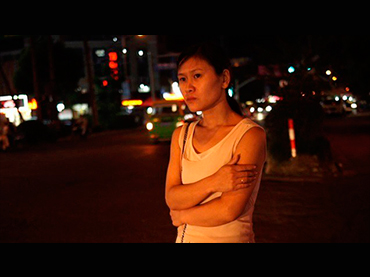
-
Wednesday, 31 October, 5:30pm
Session 15. Fengming. A Chinese Memoir
First version. Cinema edit
China, France, 2007, DCP,colour, original version with Spanish subtitles, 186’
Filmoteca Española, Cine Doré. Sala 1Wednesday, 7 November, 7pm
Session 15. Fengming. A Chinese Memoir. Second version. Museum edit
China, France, 2007, digital archive, colour, original version with Spanish subtitles, 227’
Museo Reina Sofía. Sabatini Building, AuditoriumIn what way can narration and oral memory transmit and exorcise trauma? This film personally chronicles the life of Fengming, an old woman persecuted in the early years of the Communist Regime and taken to the Jianbiangou Labour Camp. It is also the search for a visual form of testimony. The cinematic apparatus becomes invisible for three hours, placing the voice at the centre and establishing a personal connection between Fengming and the viewer. Screened for the first time in two versions, the film leads on to The Ditch, Traces and Brutality Factory. Equally, this diptych will be joined by the international premiere of Beauty Lives in Freedom, Gao Ertai.
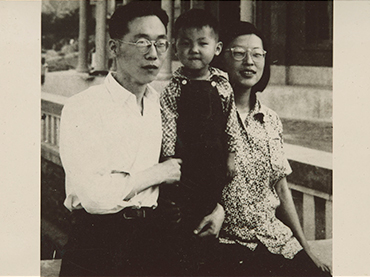
-
Saturday, 3 November, 9am
Session 16. Crude Oil
China, France, 2008, digital archive, colour, original version with Spanish subtitles, 840’
Screening without intermission, Museo Reina Sofía. Sabatini Building, Auditorium
Second session: Sunday, 4 November, 9am. Museo Reina Sofía, Sabatini Building, AuditoriumThis film installation shows the daily routines of workers on an oil rig in the district of Huatugo. Wang Bing presses ahead with the idea of connecting capital with the exploitation of the land and ecological catastrophe, and in inhumane working conditions. Tedium and lack of sleep, brought on by brief shifts, mix with kitsch pop played on the radio and the sublime landscapes of the plains to create a state of permanent hallucination, frozen between insomnia and sleep, trapping workers and viewers alike.
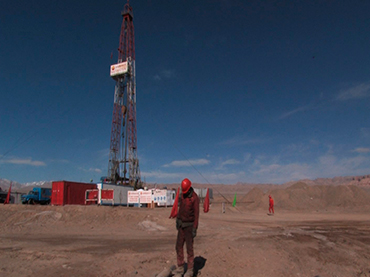
-
Sunday, 11 November, 11am
Session 17. West of the Tracks
China, 2003, digital archive, colour, original version with Spanish subtitles, 551’
Museo Reina Sofía. Sabatini Building, Auditorium
11am to 3pm (15’ intermission), 3:15pm to 6:15pm (15’ intermission), 6:30pm to 8:45pmThe coda to the series is Wang Bing’s first work, a three-part documentary which puts forward the signature themes of the film-maker, his method of filming and, at the same time, establishes what the epic and monumentality mean in contemporary cinema, seen as a dialectic manifestation of the present. West of the Tracks explores the ruin of Tie Xi, the industrial area of north-east China and erstwhile heart of the state’s heavy industry. Tie Xi is now a scene of degeneration, where economic reforms, bankruptcy, displacement and demolition have emptied factories, leaving entire communities without work. In essence, the film signals the end of a regime and the start of a new phase in China’s history.
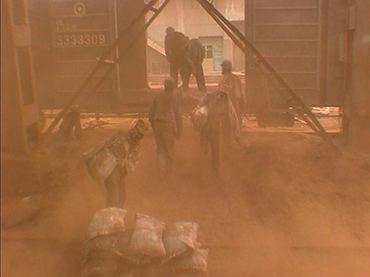
-
Thursday, 15 November, 7pm
Session 18. West of the Tracks. Part I: Rust
China, 2003, digital archive, colour, original version with Spanish subtitles, 244’
Museo Reina Sofía. Sabatini Building, AuditoriumIn this first part, Wang Bing follows workers in the Tie Xi metalworks and their daily routines, breaks and free-time, capturing every moment, from the mundane to the industrious. The workers laugh, argue, bitterly complain about their future prospects, pass the time drinking, or simply digress.
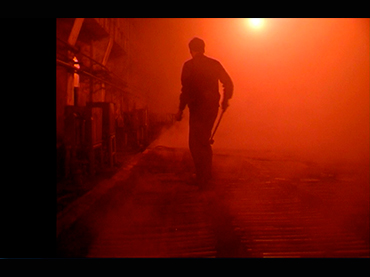
-
Friday, 16 November, 7pm
Session 19. West of the Tracks. Part II: Remnants
China, 2003, digital archive, colour, original version with Spanish subtitles, 178’
Museo Reina Sofía. Sabatini Building, AuditoriumThis second instalment sees Wang Bing follow the inhabitants of the town of Rainbow Road, one of the many Tie Xi urban developments. The workers’ children are aware of what the future holds: Wang follows groups of young people while their parents return home without work and begin to receive news of evictions.
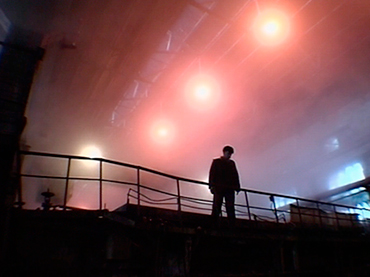
-
Saturday, 17 November, 7pm
Session 20. West of the Tracks. Part III: Rails
China, 2003, digital archive, colour, original version with Spanish subtitles, 132’
Museo Reina Sofía. Sabatini Building, AuditoriumThis part tells the story of the freight trains that connected the factories in the district of Tie Xi, and the stories of two men: Du Xiyun and his son, both unemployed and on the margins of society, living off the railroad. While Du Xiyun and his son fight to deal with the changes taking place in the world that surrounds them and keep come control over their own destinies, their friends, state railroad workers, still repeat the movements of their now-non-existent jobs as they are locked to a bygone time.
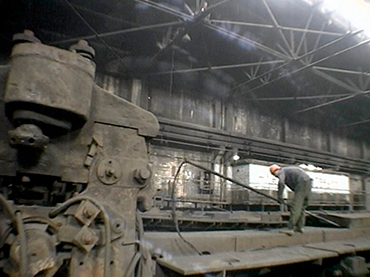
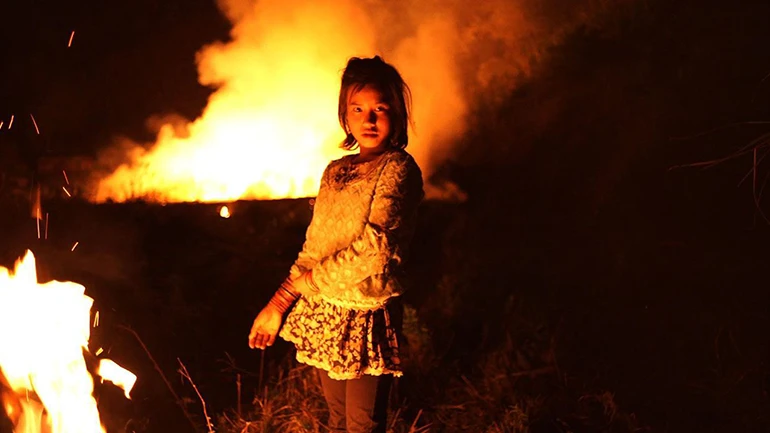
Held on 04, 05, 06, 07, 08, 09, 10, 11, 12, 13, 14, 15, 16, 17, 18, 19, 20, 21, 22, 23, 24, 25, 26, 27, 28, 29, 30, 31 Oct, 01, 02, 03, 04, 05, 06, 07, 08, 09, 10, 11, 12, 13, 14, 15, 16, 17 Nov 2018
Film-maker Wang Bing portrays people who have been excluded in China’s recent economic transformation with rare beauty and uncompromising severity, focusing on those who have been disowned by the system and experience untold cruelty on a daily basis, people who cling to life as an extreme act of resistance and dignity. In the first comprehensive retrospective on one of today’s pivotal directors, the Museo Reina Sofía and Filmoteca Española will screen the entirety of Wang Bing’s films and film installations, scarcely exhibited or shown due to their extreme running times. Moreover, the series features the film-maker’s first lecture in Spain, along with two premieres on Spanish soil and another international premiere.
Wang Bing puts forward a profound consideration of history, the paradoxes of industrial ruin and the suffering caused by the inexorable ‘progress’ in modern China in his work, taking the cinema verité ideal of observing reality to the extreme to reach a new and profound radicalism. By and large, his films, shot covertly with digital film equipment, possess a cinematic intensity that is at once beautiful and tragic with respect to the power of a world dominated by a decaying industrial infrastructure and landscapes ruined by exploitation. For months on end, he cuts himself off, living with the people he is filming as he searches for a way to transform the material conditions and temporality of their lives into allegories of a present shaped by accumulation and systemic dispossession. Frenzied construction, land transformed for energy production, the ambition and greed of the repressed, memory in a time of developmentalist amnesia and survival in the harshest conditions, these are all themes from an anonymous and contemporary history that Wang Bing masterfully captures.
Curatorship
Chema González, Museo Reina Sofía, and Carlos Reviriego, Filmoteca Española
Organised by
Museo Reina Sofía and Filmoteca Española
Más actividades
![Tracey Rose, The Black Sun Black Star and Moon [La luna estrella negro y negro sol], 2014.](https://recursos.museoreinasofia.es/styles/small_landscape/public/Obra/AD07091_2.jpg.webp)
On Black Study: Towards a Black Poethics of Contamination
Monday 27, Tuesday 28 and Wednesday 29 of April, 2026 – 16:00 h
The seminar On Black Study: Towards a Black Poethics of Contamination proposes Black Study as a critical and methodological practice that has emerged in and against racial capitalism, colonial modernity and institutional capture. Framed through what the invited researcher and practitioner Ishy Pryce-Parchment terms a Black poethics of contamination, the seminar considers what it might mean to think Blackness (and therefore Black Study) as contagious, diffuse and spreadable matter. To do so, it enacts a constellation of diasporic methodologies and black aesthetic practices that harbor “contamination” -ideas that travel through texts, geographies, bodies and histories- as a method and as a condition.
If Blackness enters Western modernity from the position of the Middle Passage and its afterlives, it also names a condition from which alternative modes of being, knowing and relating are continually forged. From within this errant boundarylessness, Black creative-intellectual practice unfolds as what might be called a history of touches: transmissions, residues and socialities that unsettle the fantasy of pure or self-contained knowledge.
Situated within Black radical aesthetics, Black feminist theory and diasporic poetics, the seminar traces a genealogy of Black Study not as an object of analysis but as methodological propositions that continue to shape contemporary aesthetic and political life. Against mastery as the horizon of study, the group shifts attention from what we know to how we know. It foregrounds creative Black methodological practices—fahima ife’s anindex (via Fred Moten), Katherine McKittrick’s expansive use of the footnote, citation as relational and loving labour, the aesthetics of Black miscellanea, and Christina Sharpe’s practices of annotation—as procedures that disorganise dominant regimes of knowledge. In this sense, Black Study is approached not as a discrete academic field but as a feel for knowing and knowledge: a constellation of insurgent practices—reading, gathering, listening, annotating, refusing, world-making—that operate both within and beyond the university.
The study sessions propose to experiment with form in order to embrace how ‘black people have always used interdisciplinary methodologies to explain, explore, and story the world.’ Through engagements with thinkers and practitioners such as Katherine McKittrick, C.L.R. James, Sylvia Wynter, Christina Sharpe, Fred Moten, Tina Campt, Hilton Als, John Akomfrah, fahima ife and Dionne Brand, we ask: What might it mean to study together, incompletely and without recourse to individuation? How might aesthetic practice function as a poethical intervention in the ongoing work of what Sylvia Wynter calls the practice of doing humanness?

Intergenerationality
Thursday, 9 April 2026 – 5:30pm
This series is organised by equipoMotor, a group of teenagers, young people and older people who have participated in the Museo Reina Sofía’s previous community education projects, and is structured around four themed blocks that pivot on the monstrous.
The third session gazes at film as a place from which to dismantle the idea of one sole history and one sole time. From a decolonial and queer perspective, it explores films which break the straight line of past-present-future, which mix memories, slow progress and leave space for rhythms which customarily make no room for official accounts. Here the images open cracks through which bodies, voices and affects appear, disrupting archive and questioning who narrates, and from where and for whom. The proposal is at once simple and ambitious: use film to imagine other modes of remembering, belonging and projecting futures we have not yet been able to live.

Remedios Zafra
Thursday March 19, 2026 - 19:00 h
The José Luis Brea Chair, dedicated to reflecting on the image and the epistemology of visuality in contemporary culture, opens its program with an inaugural lecture by essayist and thinker Remedios Zafra.
“That the contemporary antifeminist upsurge is constructed as an anti-intellectual drive is no coincidence; the two feed into one another. To advance a reactionary discourse that defends inequality, it is necessary to challenge gender studies and gender-equality policies, but also to devalue the very foundations of knowledge in which these have been most intensely developed over recent decades—while also undermining their institutional support: universities, art and research centers, and academic culture.
Feminism has been deeply linked to the affirmation of the most committed humanist thought. Periods of enlightenment and moments of transition toward more just social forms—sustained by education—have been when feminist demands have emerged most strongly. Awareness and achievements in equality increase when education plays a leading social role; thus, devaluing intellectual work also contributes to harming feminism, and vice versa, insofar as the bond between knowledge and feminism is not only conceptual and historical, but also intimate and political.
Today, antifeminism is used globally as the symbolic adhesive of far-right movements, in parallel with the devaluation of forms of knowledge emerging from the university and from science—mistreated by hoaxes and disinformation on social networks and through the spectacularization of life mediated by screens. These are consequences bound up with the primacy of a scopic value that for some time has been denigrating thought and positioning what is most seen as what is most valuable within the normalized mediation of technology. This inertia coexists with techno-libertarian proclamations that reactivate a patriarchy that uses the resentment of many men as a seductive and cohesive force to preserve and inflame privileges in the new world as techno-scenario.
This lecture will address this epochal context, delving into the synchronicity of these upsurges through an additional parallel between forms of patriarchal domination and techno-labor domination. A parallel in which feminism and intellectual work are both being harmed, while also sending signals that in both lie emancipatory responses to today’s reactionary turns and the neutralization of critique. This consonance would also speak to how the perverse patriarchal basis that turns women into sustainers of their own subordination finds its equivalent in the encouraged self-exploitation of cultural workers; in the legitimation of affective capital and symbolic capital as sufficient forms of payment; in the blurring of boundaries between life and work and in domestic isolation; or in the pressure to please and comply as an extended patriarchal form—today linked to the feigned enthusiasm of precarious workers, but also to technological adulation. In response to possible resistance and intellectual action, patriarchy has associated feminists with a future foretold as unhappy for them, equating “thought and consciousness” with unhappiness—where these have in fact been (and continue to be) levers of autonomy and emancipation.”
— Remedios Zafra

ARCO2045. The Future, for Now
Saturday 7, March 2026 - 9:30pm
The future, its unstable and subjective nature, and its possible scenarios are the conceptual focus of ARCOmadrid 2026. A vision of the future linked to recent memory, a flash of insight into a double-edged sword. This year's edition, as in the previous two, will once again hold its closing party at the Reina Sofia Museum. This time, the star of the show is Carles Congost (Olot, Girona, 1970), one of the artists featured in the new presentation of the Collections recently inaugurated on the 4th floor of the Sabatini Building.
Carles Congost, with his ironic and timeless gaze, is responsible for setting the tone for this imperfect future, with a DJ session accompanied by some of his works in the Cloister on the first floor of the Sabatini Building of the Museo on the night of Saturday 7 March.

27th Contemporary Art Conservation Conference
Wednesday, 4, and Thursday, 5 March 2026
The 27th Contemporary Art Conservation Conference, organised by the Museo Reina Sofía’s Department of Conservation and Restoration, with the sponsorship of the Mapfre Foundation, is held on 4 and 5 March 2026. This international encounter sets out to share and debate experience and research, open new channels of study and reflect on conservation and the professional practice of restorers.
This edition will be held with in-person and online attendance formats, occurring simultaneously, via twenty-minute interventions followed by a five-minute Q&A.